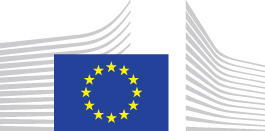
Image: piazzaffari.info
Last month the launch of the Green Growth Knowledge Platform (GGKP) coincided with the opening of the organization’s office at the International Environment House in Geneva, Switzerland, on Jan. 22. It was a stellar opportunity for me to get out of the house, but I missed it. So I doubled back and talked by phone with the group about its efforts.
What’s the point of GGKP? As Benjamin Simmons, the organization’s head. puts it in this succinct-yet-comprehensive overview: “Our aim is straightforward: to give policy makers, academics, experts and other professionals easy access to the most relevant green growth studies, policy analysis, guidance and data.”
It’s all about putting the best information about sustainable development and ways of reaching the goal of a “green economy” in front of the right people. The link in the previous sentence goes to the UN Environment Programme (UNEP), which boils down the definition of green economy to its essence: It’s low carbon, resource efficient and socially inclusive.
“The first part of our mission is about catalyzing research in and around green growth,” said Amanda McKee, GGKP’s communications and outreach officer, based in Washington, D.C. “The second part of our mission is to make all the research acceptable to policy makers and practitioners.”
The data in the platform covers a lot of ground. The resource library contains about 600 publications organized by sector (e.g., water) and cross-cutting theme (e.g., gender), McKee said, adding that data is also organized geographically, representing 193 countries (see the Green Growth Map).
There’s also a collaborative element aimed at filling green-growth knowledge gaps. Currently, committees are looking at four topics: trade and competitiveness, technology and innovation, measurement and indicators, and fiscal instruments. “If we’re able to generate results from this, we’ll branch out into other topics and launch new committees,” McKee said.
And how will GGKP know if it’s succeeding in its overall mission?
“We’re in the process of developing indicators for measuring success,” McKee said. “In terms of the knowledge-generation aspect, I think the way we’ll measure success is how much of this research is ultimately picked up by these communities. On the knowledge-management side, a sign of success would be how many policy makers or government officials are making use of resources to put in place green-growth strategies or policies.”
The GGKP was established by the Global Green Growth Institute (GGGI), the Organisation for Economic Co-operation and Development (OECD), the United Nations Environment Programme (UNEP), and the World Bank, where it was initially “incubated,” McKee said. Those steering organizations provide in-kind contributions and part-time staffing to GGKP, while strategic funding comes from the government of Switzerland, which is providing 1.6 million CHF over three years.
GGKP’s main event is its annual conference; the next one, organized by UNEP, will take place in February 2015. The group sometimes stages side-events at major conferences, like the “open-thinking event on the expansion of green-growth knowledge” planned for UNEP’s inaugural Partnership for Action on Green Economy (PAGE) conference coming up in Dubai, UAE, March 4-5, McKee said.











